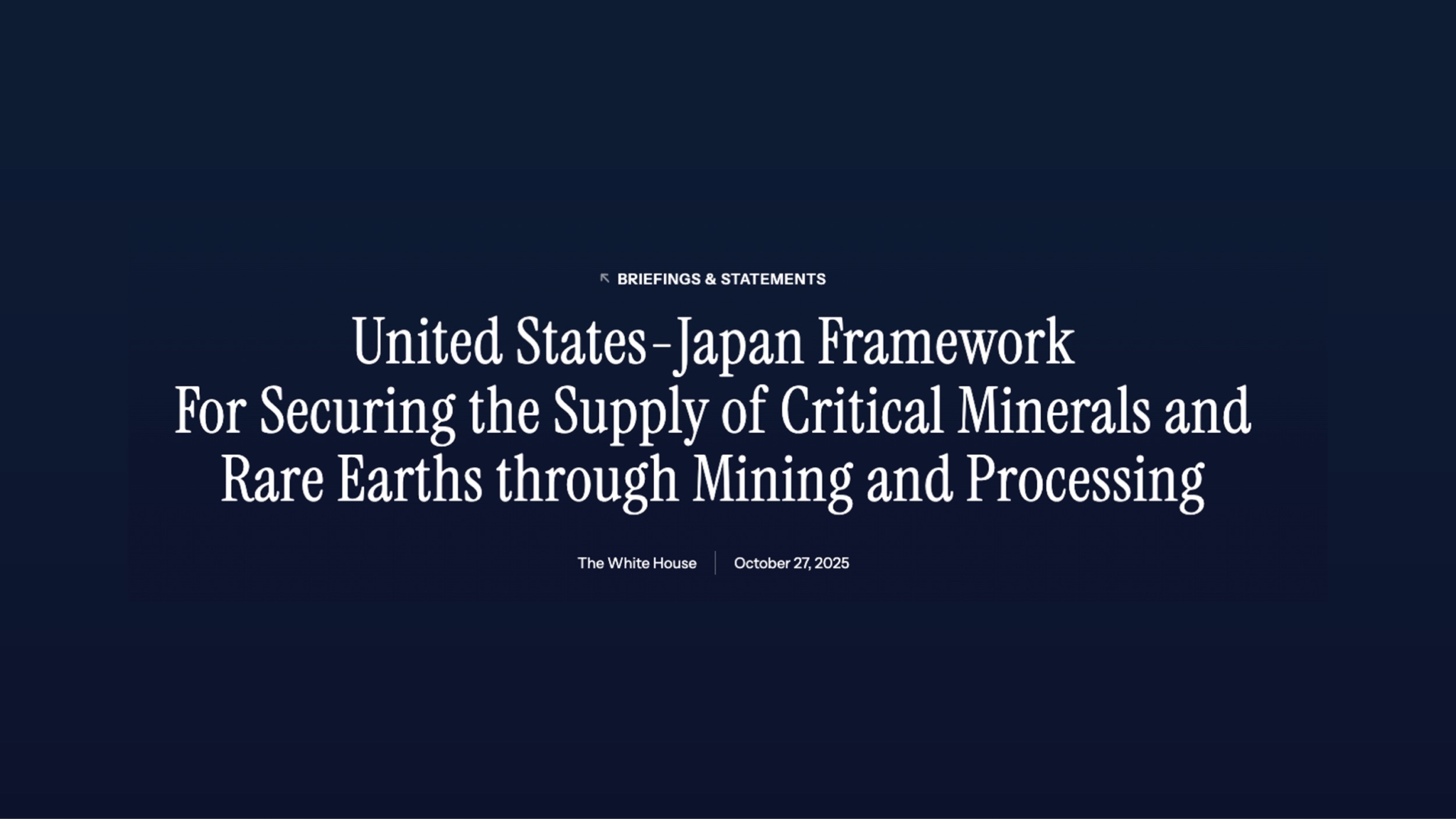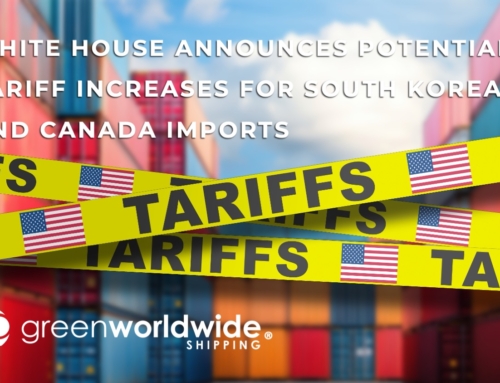The United States and Japan have formalized a new series of economic and technology agreements in Tokyo, advancing collaboration on critical minerals, advanced energy, and science and innovation. Signed between October 27 and 28, 2025, the initiatives include the U.S.–Japan Framework for Securing the Supply of Critical Minerals and Rare Earths, the Technology Prosperity Deal, and a series of significant private-sector investment commitments announced during the White House’s state visit. The agreements come two months after the two countries signed a trade agreement specifying tariff limits.
WHAT IS THE PURPOSE OF THE AGREEMENTS?
The new frameworks seek to strengthen bilateral cooperation in mining, processing, innovation, and industrial development. The Critical Minerals Framework outlines measures to expand responsible extraction, streamline permitting, mobilize public and private financing, and coordinate strategic stockpiling. It also establishes a joint Rapid Response Group, led by the U.S. Secretary of Energy and Japan’s Minister of Economy, Trade, and Industry, to address potential disruptions and ensure continuity of mineral supply.
HOW WILL THE TECHNOLOGY PROSPERITY DEAL ADVANCE INNOVATION?
The Technology Prosperity Deal focuses on joint research and secure technological leadership across artificial intelligence, quantum computing, biotechnology, telecommunications, fusion energy, and space. Both countries agreed to promote pro-innovation AI policy frameworks, align export controls, and strengthen standards through the partnership between the U.S. Center for AI Standards and Innovation and the Japan AI Safety Institute. The agreement also enhances research security, reinforces biotechnology and pharmaceutical supply chains, and extends collaboration in 6G networks, fusion energy, and lunar exploration under NASA’s Artemis program.
HOW DO THESE AGREEMENTS SUPPORT ENERGY AND INDUSTRIAL DEVELOPMENT?
According to the White House fact sheet, Japan’s investment commitments total more than $550 billion to expand energy infrastructure and technology capacity in the United States. Up to $332 billion will support nuclear and conventional power generation, including small modular reactors developed with Westinghouse, GE Vernova, and Hitachi. Additional investments will fund power-grid modernization, advanced cooling systems, and data-center equipment. In manufacturing and logistics, more than $1 billion is committed for fertilizer production, port upgrades, and lithium-iron-phosphate battery facilities. Toyota also announced plans to export U.S.-made vehicles to Japan under newly reciprocal market-access provisions.
The directives issued by the two country’s instruct ministers to implement policies that advance innovation, supply-chain resilience, and sustainable growth.
Stay up-to-date on freight news with Green’s Weekly Freight Market Update by following us on LinkedIn. For continuous updates, make sure to check out our website at greenworldwide.com.






